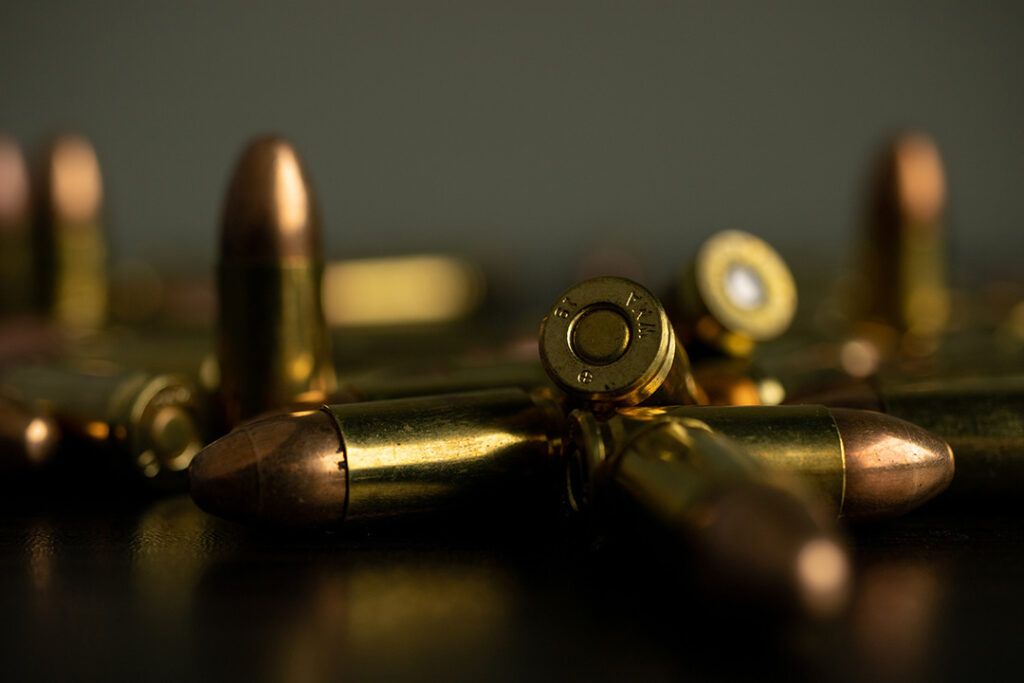Moral missiles: The ethics of weapons in the war against Ukraine
Moral missiles: The ethics of weapons in the war against Ukraine
Countries are sending weapons to help Ukraine defend itself from Russia. Is the use of weapons in the current war moral from a religious perspective?
Weapons in warfare
On October 10th 2022, the Ukrainian capital Kyiv was hit by Russian missiles, leaving 19 people dead. A week later, the city was attacked by ‘kamikaze’ drones, which killed at least eight more.[1] These recent events are a mere snippet of the Russian violence that began in February 2022.
As Russia continues to attack Ukraine, countries are sending weapons to help Ukraine fight back. Tanks, drones, howitzers, and missile systems have been sent across borders to be delivered to the Ukrainian army.[2] The US, Canada, and many European countries have contributed to the supply of arms for Ukraine.[3]
War, and especially the use of deadly weapons, is a common subject of moral debate. Is waging war ever morally legitimate? Is the use of weapons in the current war permissible from a religious perspective? It depends on who you ask.
A “holy war”
Patriarch Kirill, spiritual leader of the Russian Orthodox Church, is known to openly support the war against Ukraine. His commentary suggests a narrative that even justifies the war. According to this narrative, the Russian invasion is a ‘holy war’ against the immoral influences of Western culture.[4] Kirill believes that Russian culture needs to be shielded from godless cultural practices like LGBTQ+ acceptance.[5]
After Putin announced his plans for a partial mobilisation in September, Patriarch Kirill even compared serving in the Russian army to the sacrifice of Jesus Christ. He emphasised that if Russians sacrifice their lives for their homeland, they await glory and eternal life in the Kingdom of God. He claimed that like the sacrifice of Christ, their sacrifice will wash away all of their sins.[6]
Some Muslim leaders in Russia also urge believers to participate in the war against Ukraine. They sometimes go as far as framing it as a form of Jihad. Chechen Mufti Salakh Mezhiyev previously claimed that those who sacrifice their lives for Russia will become shahids, martyrs. A likely reason for their enthusiastic support of the Russian invasion is that muftis often have close ties with the official Kremlin line.[7]
An appeal to peace
Nevertheless, there are also Muslim leaders in Russia who do not show support for the war. Instead, they call for prayer and an end to violence.[8] This sentiment is shared with many Christian institutions in Europe. The language of churches in Europe is mainly characterised by an appeal to peace and reconciliation, values that lie at the heart of Christian faith. The Council of European Bishops’ Conferences (CCEE) and the Conference of European Churches (CEC) issued a declaration in which they oppose violence and call for dialogue.[9] Pope Francis, too, keeps emphasising the value of peace. Over the course of the war, the pope repeatedly urged those fighting to lay down their weapons and choose peace over conflict.[10] He explicitly condemns violence and the use of weapons.[11] On October 2nd, Pope Francis called on President Putin to end the war in Ukraine and asked Ukrainian president Zelensky to be open to peace negotiations.[12]
A just war?
Many religious leaders condemn the Russian aggression against Ukraine. But how do they feel about Ukraine fighting back with weapons supplied by other countries?
On September 15th, Pope Francis stated that sending weapons to Ukraine can be morally legitimate if it is done under certain conditions. One condition is that it must serve the goal of self-defence against an aggressor nation. Apart from this, the use of weapons must be proportional and the intention underlying their use must be moral.[13] Although his language often carries a pacifist undertone, Pope Francis expresses a viewpoint in line with Just War Theory. Pacifism implies that all wars are morally impermissible. Just War Theory, on the other hand, maintains that wars can be either just or unjust.[14]
A primary condition of Just War Theory is that in order to be morally legitimate, a war must respond to a just cause. A just cause for war is usually found in self-defence against aggression from outside, like the Russian invasion of Ukraine. Other-defence is often also thought of as a just cause for war. This means that it is morally permissible to help a state that is trying to fight off aggression. According to this view, it is morally legitimate for Ukraine to use deadly weapons to defend itself against Russian aggression. Moreover, sending weapons to Ukraine is morally permissible because it aids them in their self-defence.[15]
Peace and reconciliation are valued by all major religions. From the viewpoint of religion, the use of weapons is generally undesirable. Violence is to be avoided, but not at all costs. There are situations in which using weapons is morally justified. Ukraine defending itself from Russian aggression can be seen as one of them.
Want to learn more about similar topics? Explore the EARS Dashboard.
Sources
[1] Ukraine war: Russia dive-bombs Kyiv with ‘kamikaze’ drones
[2] Ukraine weapons: What military equipment is the world giving?
[3] Weapons to Ukraine: Which countries have sent what?
[4] De rol van de kerk in de vuile Russische strijd is ronduit schokkend
[5] Anti-homopreek van patriarch schreeuwt om weerwoord
[6] ‘Vechten voor Rusland wast al je zonden weg’, zegt patriarch Kirill
[7] Ukraine’s Muslim leaders united against Putin’s war; Russia’s very much divided
[8] Ukraine’s Muslim leaders united against Putin’s war; Russia’s very much divided
[9] Ukraine: European Churches call for true dialogue for lasting peace
[10] Paus doet indringende oproep: ‘Leg de wapens neer, vrede begint met verzoenende taal’
[11] Papież o Ukrainie: Pękło mi serce. Diaboliczna logika broni
[12] ‘Cyclus van geweld en dood’: Paus roept Poetin op oorlog in Oekraine te staken
[13] Pope says supplying weapons to Ukraine is morally acceptable for self defence






